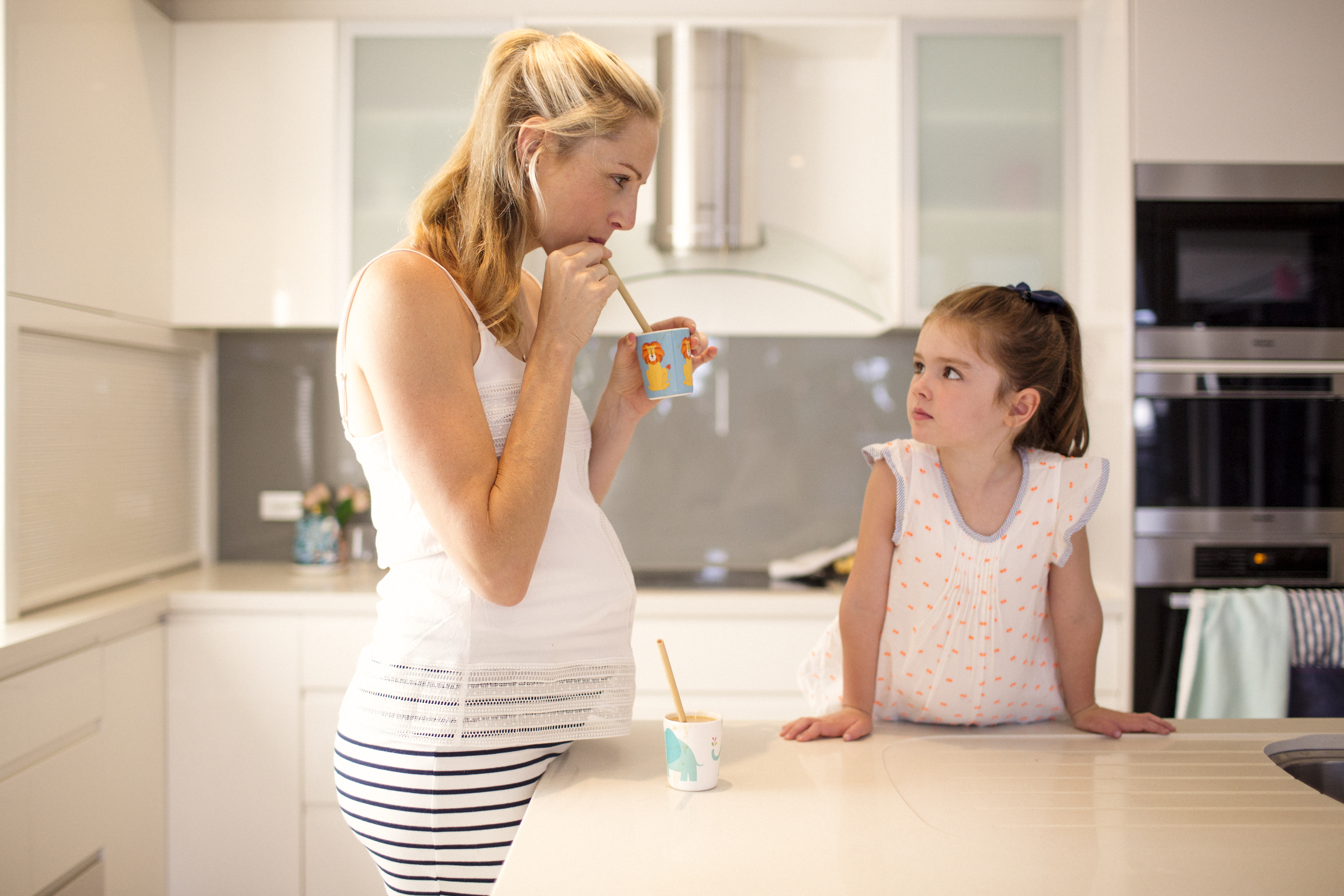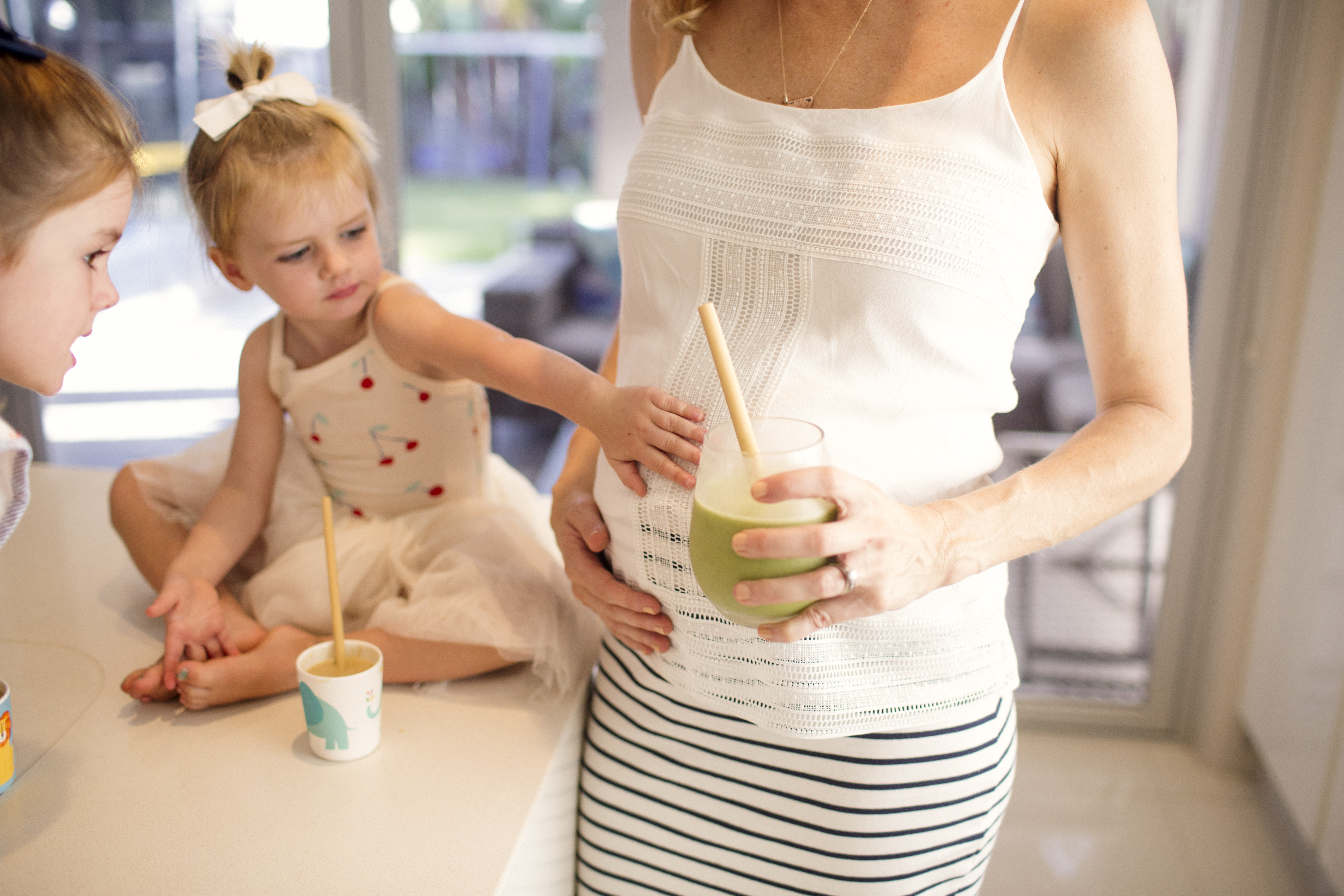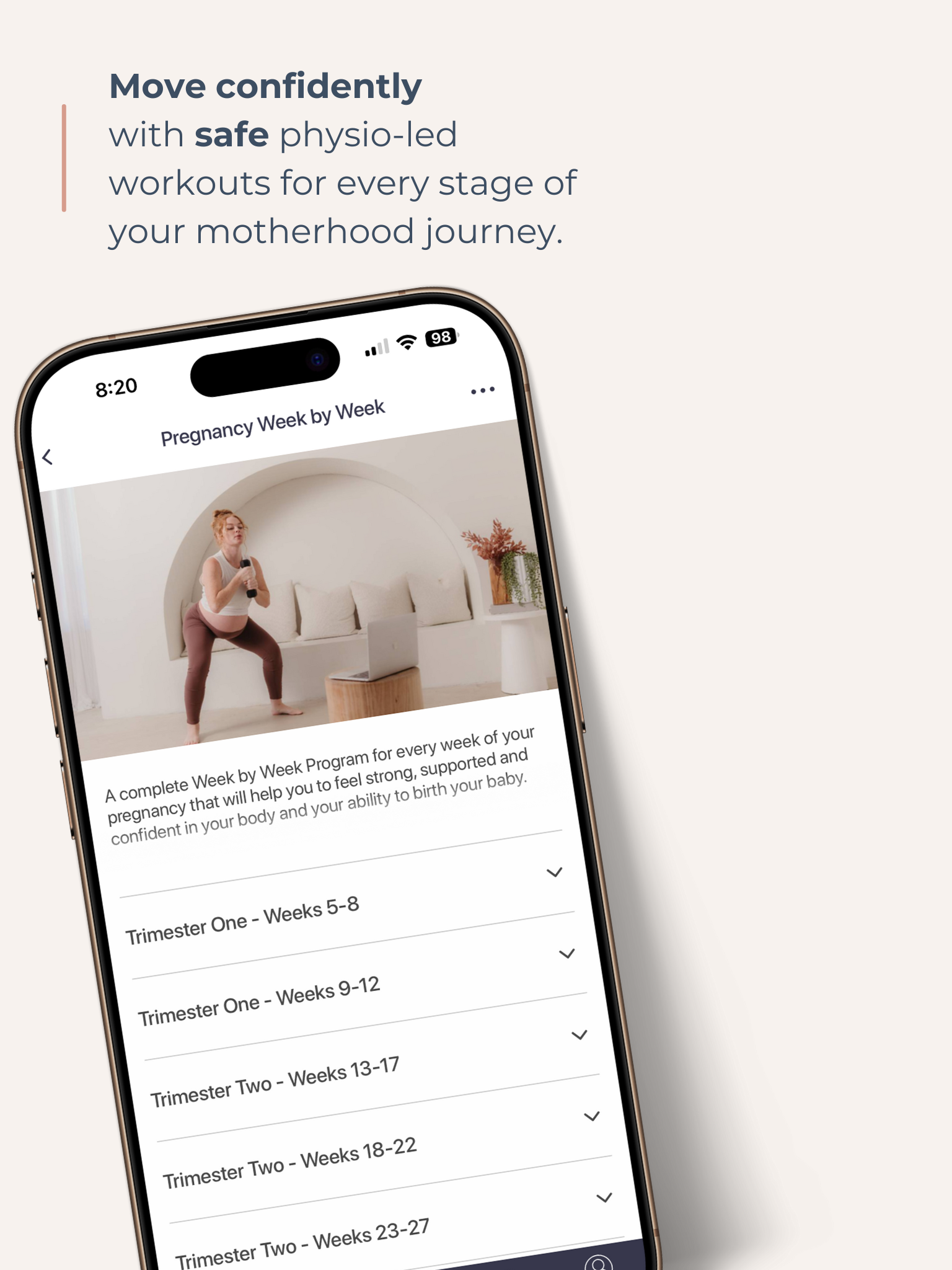How Food can affect your mental health in the perinatal period - with an Accredited Practising Dietician

Introduction to Nutrition and Mental Health in the Perinatal Period
Written by Meghan Hockey - Accredited Practising Dietitian
When discussing pregnancy nutrition, conversations tend to centre around the baby's development and what to eat to support postpartum recovery. However, emerging research suggests nutrition may be just as important to mental health during this period.
As an Accredited Practising Dietitian and a mum of two little boys, I've witnessed the intersection of nutrition and mental health from professional and personal perspectives. After completing my PhD in Nutritional Psychiatry - the field of research which looks at the connection between what we eat and how we think and feel - in 2021, my own postpartum experience highlighted a striking gap: despite growing evidence, there's surprisingly little practical information about nutrition's role in perinatal mental health.
To help bridge this gap, I launched my online private practice, which specialises in evidence-based nutrition and is designed to help improve mental health. My approach focuses on taking the latest science around nutrition and the gut-brain connection and creating practical and realistic strategies that help women make sustainable changes to improve their mental health.
The Science of Food and Mood
Over the last decade, research has significantly advanced our understanding of how diet influences our mental well-being. Clinical trials have shown that improving diet quality can reduce depressive symptoms in adults, with some studies showing benefits in as little as three weeks. Importantly, these dietary changes were made to complement – rather than replace – usual treatments like therapy and medication.
While clinical trials specifically focused on pregnant and postpartum women are lacking at present, other types of research suggest that nutrition and mental health may be linked during this period. Studies following women from pregnancy through postpartum have found that the quality of the women's diet during pregnancy was linked to their risk of developing postpartum depression. Similarly, studies have shown greater adherence to a healthy diet during the postpartum period is linked to lower postpartum symptoms.
Why Does Nutrition Matter During The Perinatal Period?
Several mechanisms may explain the nutrition-mental health connection during the perinatal period:
1. Increased Nutrient Demands: Pregnancy dramatically increases the need for nutrients that supports both maternal brain health and the baby's development. Deficiencies in key nutrients like vitamin D and omega-3s have been linked to higher postpartum depression risk.
2. Gut Microbiome Changes: Pregnancy naturally reshapes our gut microbiome – the community of bacteria which live in the gut. These gut bacteria influence the production of brain chemicals (like serotonin) and inflammation levels throughout the body. What we eat can directly alter our gut microbiome, which may impact our immune function and mood.
3. Hormonal Shifts: Certain nutrients may help support hormonal transitions, including dramatic changes in estrogen postpartum, which in turn may have benefits for our mood.
What to Eat to Support Perinatal Mental Health
While clinical trials have mostly looked at the Mediterranean diet’s benefits for depression in adults, there isn’t enough evidence to suggest a specific diet for mental health during pregnancy and postpartum just yet. Instead, research suggests focusing on a diverse range of nutrient-dense whole foods, including:
- Vegetables and fruits
- Whole grains, such as whole grain bread, oats, brown rice and wholemeal pasta
- Nuts and seeds
- Legumes, such as beans and lentils
- Fish and seafood, particularly omega-3 rich, low-mercury options like salmon, sardines and tuna
- Herbs and spices
- Extra-virgin olive oil
These foods are not only beneficial for mental health but are also recommended as part of a balanced pregnancy diet.

Keeping It Real
After experiencing the highs and lows that come with the perinatal period, I get the challenges that come with eating well during pregnancy and postpartum. Morning sickness, fatigue, and the demands of new parenthood can make even simple meals feel overwhelming.
Importantly, what you eat does not cause poor mental health - nutrition is just one piece of a much larger puzzle in perinatal well-being. While emerging research suggests that dietary choices may play a supportive role in mental health, it's essential to view nutrition as a complement to, never a replacement for, evidence-based treatments like therapy and medication.
The goal isn't about dietary perfection either - it's about finding sustainable changes that work for you and where you’re at. Perhaps that means adding an extra vegetable to dinner, choosing whole-grain bread when possible, or keeping nuts handy for snacking. These small, manageable shifts may seem modest, but they accumulate over time to support both physical and mental well-being during this period of life.
About the Author

Meg is a mum to two little boys and an Accredited Practising Dietitian specialising in nutrition for mental health.
She completed her PhD in Nutritional Psychiatry with Deakin University’s Food & Mood Centre in 2021 and has worked in research for several years exploring the link between nutrition, mental health and the gut-brain connection.
Now, drawing on this science, she uses a practical, evidence-based approach to eating to help people with low mood, anxiety and depression better their mental and gut health.
Learn more about Meg here: https://meghanhockey.com/about-2/
References
Silva DFO, Cobucci RN, Gonçalves AK, et al. Systematic review of the association between dietary patterns and perinatal anxiety and depression. BMC Pregnancy Childbirth 2019; 19(1): 212.
Sun Y, Ferguson M, Reeves MM, Kelly JT. Maternal Dietary Patterns and Risk of Postpartum Depression: A Systematic Review. Matern Child Health J. 2023 Dec;27(12):2077-2090. doi: 10.1007/s10995-023-03781-7. Epub 2023 Oct 9. PMID: 37814068; PMCID: PMC10618401.
Opie RS, Uldrich AC, Ball K. Maternal Postpartum Diet and Postpartum Depression: A Systematic Review. Matern Child Health J. 2020 Aug;24(8):966-978. doi: 10.1007/s10995-020-02949-9. PMID: 32367245.
Jacka FN, O'Neil A, Opie R, Itsiopoulos C, Cotton S, Mohebbi M, Castle D, Dash S, Mihalopoulos C, Chatterton ML, Brazionis L, Dean OM, Hodge AM, Berk M. A randomised controlled trial of dietary improvement for adults with major depression (the 'SMILES' trial). BMC Med. 2017 Jan 30;15(1):23. doi: 10.1186/s12916-017-0791-y.
Francis HM, Stevenson RJ, Chambers JR, Gupta D, Newey B, Lim CK. A brief diet intervention can reduce symptoms of depression in young adults - A randomised controlled trial. PLoS One. 2019 Oct 9;14(10):e0222768. doi: 10.1371/journal.pone.0222768. PMID: 31596866; PMCID: PMC6784975.
Get your Free Physio-led Pelvic Floor and CoreWorkouts
Download three free videos for either pregnancy or postpartum.








